
Three chamber works by Klaus Lang of a beautifully fragile and dark nature and a meticulous inner structure, alongside arrangements of early music pieces by Johannes Ockeghem and Pierre de la Rue, performed by Klaus Lang himself on organ with the Trio Amos of Sylvie Lacroix on flute, Krassimir Sterev on accordion and Michael Moser on cello.
In Stock
Quantity in Basket: None
Log In to use our Wish List
Shipping Weight: 3.00 units
EU & UK Customers:
Discogs.com can handle your VAT payments
So please order through Discogs
Sample The Album:
Klaus Lang-organ, composer
Sylvie Lacroix-flute
Krassimir Sterev-accordion
Michael Moser-cello
Click an artist name above to see in-stock items for that artist.
Label: Another Timbre
Catalog ID: at190
Squidco Product Code: 32029
Format: CD
Condition: New
Released: 2022
Country: UK
Packaging: Cardboard Gatefold
Recorded at Stift St. Lambrecht, in Peterskirche, Austria, on July 15th and 16th 2019, by Wolfgang Musil.
"The beginning of western philosophy, and the basis for all western art, is grounded in the fascinating intellectual achievement of Pythagoras: to find, by observing the concrete and contingent in nature, a purely abstract principle: numbers. The history of western art is a history of different ways of applying principles found in nature to the creation of art. The combination of structural clarity and beauty with rich sensual quality fascinates me in nature, and that is what I try to achieve in my own work. It is also the principle that I see in the music that I feel closest to: Renaissance music by the likes of Johannes Ockeghem or Pierre de la Rue, that uses the rigour of structure to set free the beauty of sound. But even if we can explain every single note in a canon by Ockeghem, we cannot explain the depth of the sensual experience that we feel when listening to that canon."-Liner note by Klaus Lang
Another Timbre Interview with Michael Moser of Trio Amos
Could you tell us about the trio's collaboration with Klaus? Is it a long-term partnership, or is this the first time that Trio Amos have played Klaus's music?
The collaboration with Klaus and the individual musicians of Trio Amos goes way back. I, for example, have something like an ongoing multifaceted relationship with Klaus spanning over a period of more than 20 years. He wrote pieces for me as the soloist with chamber orchestra (the queen.the cowboy, 2001) and choir (berge.träume, 2003), together we played his piece for harmonium and cello (tehran.dust, 2013), and in more open settings like 'werner dafeldecker's small worlds' together with John Tilbury, or in concerts of improvised music. In 2018 the ensemble Polwechsel did a collaboration with Klaus and recorded the CD Unseen.
With Trio Amos we have a long-term partnership with Klaus, starting with origami, the first piece he wrote for us in 2011. Continuing with his piece darkness and freedom in 2017 and a new piece for Trio Amos plus piano and harmonium (dreamland, 2020), that we recently premiered together with Klaus and the pianist Tamriko Kordzaia at Hamburg's Klub Katarakt festival.
Klaus is the opposite of a pushy composer who works hard to hustle and promote his work. So how would you describe his music to someone who doesn't know it, and what qualities particularly draw you to it?
Klaus's music is calm, mostly quiet, often barely moving, sometimes fragile but fascinating in terms of sound and textures. He aims to blend all the instruments into a soundscape-like surface where the origin of the produced sound is rendered unimportant. All the instruments involved create more or less one sound. His compositional work mirrors the beauty of ancient proportional methods, but as the individual instrumental sounds become abstract, the underlying structures also disappear, immersed under the texture they create. The goal is to blend all the sounds that you produce into one picture, but that is sometimes hard to achieve, especially in moments with very virtuosic materials. However, the result is always rewarding. It's not only technique, but also a certain mindset that you have to have, a certain concentration, playing that kind of music, and I think this is something that an audience can clearly feel and appreciate.
Was it the Trio's idea, or Klaus's, to include arrangements of works by Ockeghem and De la Rue, and why did you choose to combine these with Klaus's music?
The idea to include arrangements of renaissance works came from Klaus. In recent years he has often combined his own pieces with Renaissance music in his smaller chamber music concerts, and when he proposed that to us we really liked the idea. Furthermore, his text for the liner notes of this CD underlines the importance of the principle that he sees in the music that he feels closest to: Renaissance music by the likes of Johannes Ockeghem or Pierre de la Rue, that uses the rigour of structure to set free the beauty of sound.
Can you tell us some more about Trio Amos? When was the group formed, and - aside from Klaus's music - what other composers' music have you played frequently?
Bringing these instruments and these three musicians together in a long-term trio goes back to an idea Bernhard Lang had. He wrote a piece in his Difference/Repetition series for these three instruments: Difference/Repetition 3. Preceding that, and serving as a founding myth and a source of inspiration, were his series of three solo pieces, Schrift 1, 2, and 3 for flute, violoncello, and accordion. These three Schrift pieces had been conceived as one, to be played continuously with no pause between the pieces, and the composing of DW3 (2000) filled the gap to create an evening long concert programme consisting solely of Bernhard Lang's music. After this initial spark, and the successful and extensive concert performances resulting from it, the idea developed of expanding the repertoire, which until then consisted of a single composition (Difference/Repetition 3). That was the starting point for the continuous work of Trio Amos.
What is fascinating about Trio Amos, besides the personal skills of the members, is its special sound. It permits delicately nuanced mixtures, along with the fact that the three instruments can be viewed as the smallest form of an orchestra: melody, bass, and harmony.An important aspect of the developmental work of the Trio, along with its striving to collaborate with renowned composers, is the aim of creating a field of dialogue and collaboration with a younger generation of composers. In the summer of 2007, we developed a programme with new pieces by Peter Jakober, Leah Muir and Elisabeth Harnik. And in 2008 the trio performed world premieres of works by Daniel Salecich, Uday Krishnakumar, and Marcel Reuter, followed in 2009/10 by works by Simeon Pironkoff, Angelo Sturiale, and Klaus K. Hübler. World premieres of works by Reinhard Fuchs, Sivan Cohen-Elias, Jean Baptiste Marchand and Klaus Lang's origami followed in the 2010/11 season. Composers Joanna Wozny and Matthias Kranebitter wrote for Trio Amos, and the trio's work continued in 2014/15 with the premieres of new pieces by Bernhard Lang (monadologieXXI..... for Franz), Nimrod Sahar (Garden Path (Holzwegeffekt) and Zesses Seglias (trio amoroso, omaggio a Claudio Monteverdi) at the Tzil Meudcan Festival in Tel Aviv. In 2016 the collaboration with Bernhard Lang continued with the world premiere of Monadologie XVIII "Moving architecture" in the version for voice, flute accordion and cello at the Akademie der Künste, Berlin (with Daisy Press, voice) and Trio Amos premiered Klaus Lang's new work darkness and freedom at Klangspuren Festival Schwaz 2018.

The Squid's Ear!
Artist Biographies
• Show Bio for Klaus Lang "Klaus Lang (*1971 Graz / Austria) lives in Steirisch Lassnitz (Austria). He studied composition and theory of music (with H.M. Preßl, B. Furrer and Y. Pagh-Paan) and organ. Klaus Lang loves tea and dislikes lawnmowers and Richard Wagner. Klaus Lang's music is not a means to convey extramusical contents, such as emotions, philosophical or religious ideas, political propaganda, advertisement etc... His music is no language used to communicate non-musical content. Music is seen as a free and selfstanding acoustical object. In his work he is not using sound, sound is explored and given the opportunity to unfold its inherent rich beauties. Only when sound is just sound it is percievable as that what it really is: a temporal phenomenon - audible time. Klaus Lang sees time as the genuine material of a composer and at the same time also the fundamental content of music. In his view musical material is time perceived through sound, the object of music is the experience of time through listening. Music is time made audible." ^ Hide Bio for Klaus Lang • Show Bio for Sylvie Lacroix "Sylvie Lacroix is a freelance flutist residing in Vienna. She performs primarily as a concert soloist and chamber musician. Particularly active in the field of contemporary music, she often works in collaboration with composers. Sylvie Lacroix is a founding member of "Klangforum Wien" and performed with this ensemble until 1997. She is frequently performing the most recent works for solo flute by Salvatore Sciarrino, K.K. Hübler, Chaya Czernowin and Bernhard Lang amongst others. She is a member of PHACE | CONTEMPORARY MUSIC and Trio AMOS - together with Krassimir Steven (Akkordeon) and Michael Moser (Violoncello). From 1990 to 2006, she was particularly committed to working on pedagogic projects. During the course of this work she founded "Musikpalette", a chamber music summer course for children and young people focusing on contemporary music. A few years ago she also started working on her own compositions. She wrote works for chamber music as well as works for flute and electronic music - in collaboration with Alexander Stankovski and Florian Bogner. Next to her interest in contemporary music, Sylvie Lacroix also has many years of experience in the field of historical performance practice. She is also a member of the baroque music ensemble"concerto viennese"." ^ Hide Bio for Sylvie Lacroix • Show Bio for Krassimir Sterev "Krassimir Sterev, accordion. Krassimir Sterev was born in Bulgaria where he started his musical education in Plovdiv. He continued his studies at the University of Music Graz, as well as in Denmark where he held a scholarship from the Royal Danish Academy of Music, graduating as accordion soloist. His musical development was strongly influenced by teachers like Mogens Ellegaard, James Crabb, and Georg Schulz. Krassimir Sterev performs internationally as a soloist and member of chamber music formations, ensembles, and orchestras and plays at many renowned festivals. His engagements include appearances in various theatre and dance productions and projects specifically developed for children. Krassimir Sterev became a member of Klangforum Wien in 2003. He has also worked with the Vienna Philharmonic (under Pierre Boulez and Daniel Barenboim), the London Philharmonia Orchestra and the RSO Wien, with the ensembles Kontrapunkte, musikFabrik and Ensemble Phace and he is part of the Amos Trio. In addition, Krassimir Sterev focuses his attention on the development of a special repertoire for accordion. Many composers have written new pieces for him - amongst them Bernhard Lang, Pierluigi Billone, Bernhard Gander, Olga Neuwirth, Aureliano Cattaneo, Rebecca Saunders, Chaya Czernowin and Hannes Kerschbaumer - which he premièred." ^ Hide Bio for Krassimir Sterev • Show Bio for Michael Moser "Michael Moser, born 1959 in Graz, Austria, studied cello in Graz and Vienna. He is intensively engaged with different forms of contemporary music: improvisation, performances, music for theatre and film, experiments with live-electronics. Numerous pieces for cello solo have been composed at his suggestion. He has collaborated with distinguished artists such as Peter Ablinger, Bernhard Lang, Isabel Mundry, Helmut Lachenmann, Alvin Lucier, Klaus Lang, Otomo Yoshihide, Pauline Olivieros,Elliott Sharp, Nick Collins, Michael Maierhof, Phill Niblock, Tony Oxley, Zeitkratzer, Polwechsel, Klangforum Wien. Michael Moser played at numerous festivals for contemporary and improvised music. In 2008, he is a guest of the Berlin artists' programme DAAD." ^ Hide Bio for Michael Moser
7/1/2025
Have a better biography or biography source? Please Contact Us so that we can update this biography.
7/1/2025
Have a better biography or biography source? Please Contact Us so that we can update this biography.
7/1/2025
Have a better biography or biography source? Please Contact Us so that we can update this biography.
7/1/2025
Have a better biography or biography source? Please Contact Us so that we can update this biography.
Track Listing:
1. Origami 15:31
2. Kyrie (Missa Prolatium) 05:08
3. Tehran Dust 12:26
4. 'Agnus Dei' (From Glareanus Dodecacordon) 02:20
5. Darkness And Freedom 25:53
Compositional Forms
Trio Recordings
Piano & Keyboards
European Improvisation, Composition and Experimental Forms
Ambient, Minimal, Reductionist, Onky Sound, &c.
New in Compositional Music
Search for other titles on the label:
Another Timbre.

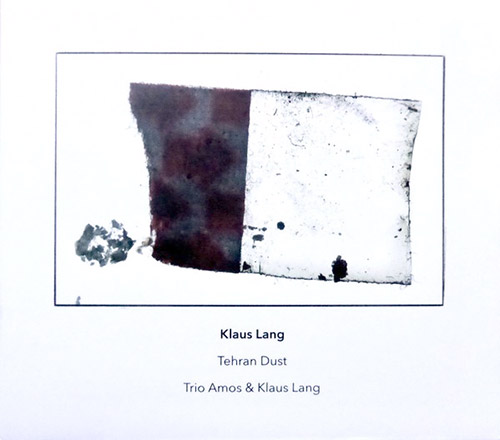
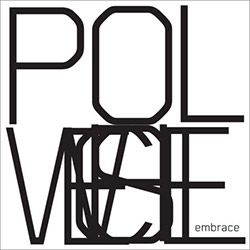
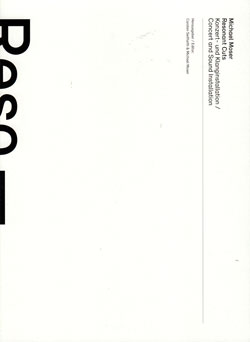

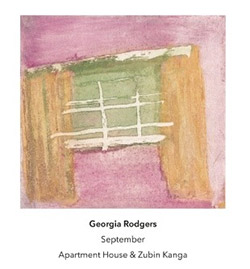
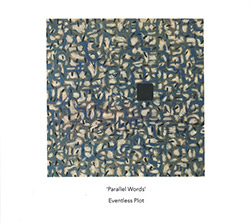
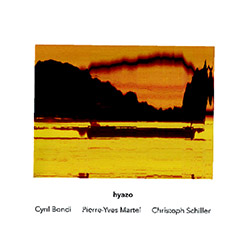
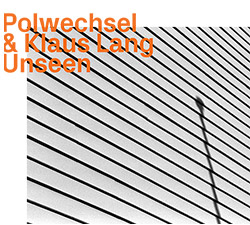
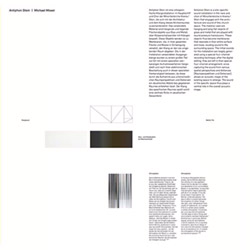
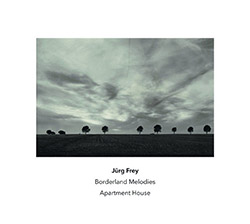

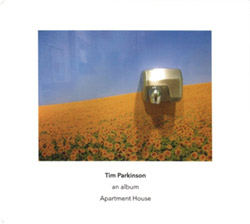
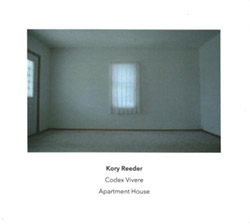



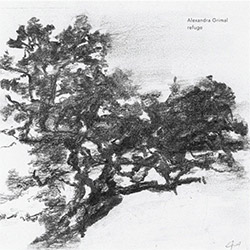

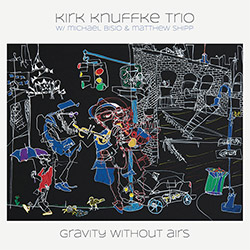
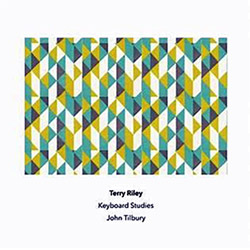


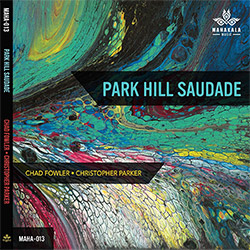














![Deupree, Jerome / Sylvie Courvoisier / Lester St. Louis / Joe Morris: Canyon [2 CDs]](https://www.teuthida.com/productImages/misc4/36404.jpg)


![Eternities: Rides Again [CASSETTE]](https://www.teuthida.com/productImages/misc4/36247.jpg)

![Lopez, Francisco: Untitled (2021-2022) [2 CDs]](https://www.teuthida.com/productImages/misc4/36438.jpg)




![Eventless Plot | Haarvol: The Subliminal Paths [CASSETTE + DOWNLOAD]](https://www.teuthida.com/productImages/misc4/36232.jpg)












![Eventless Plot | Francesco Covarino: Methexis [CASSETTE + DOWNLOAD]](https://www.teuthida.com/productImages/misc4/36231.jpg)



![Das B (Mazen Kerbaj / Mike Majkowski / Magda Mayas / Tony Buck): Love [VINYL]](https://www.teuthida.com/productImages/misc4/36329.jpg)



![Hemphill Stringtet, The: Plays the Music of Julius Hemphill [VINYL]](https://www.teuthida.com/productImages/misc4/36409.jpg)



![Halvorson, Mary Septet: Illusionary Sea [2 LPS]](https://www.teuthida.com/productImages/misc4/17952.jpg)






![Money : Money 2 [2 CDs]](https://www.teuthida.com/productImages/misc4/35894.jpg)




![Klinga, Erik: Elusive Shimmer [VINYL]](https://www.teuthida.com/productImages/misc4/36258.jpg)
![CHANGES TO blind (Phil Zampino): Volume 9 - I Wave on a Fine Vile Mist [CD + DOWNLOAD]](https://www.teuthida.com/productImages/misc4/36061.jpg)

![Wallmart / Rubbish: Asset Protection [split CD]](https://www.teuthida.com/productImages/misc4/35900.jpg)


![+Dog+: The Family Music Book Vol. 5 [2 CDs]](https://www.teuthida.com/productImages/misc4/35897.jpg)
![Kuvveti, Deli : Kuslar Soyledi [CASSETTE w/ DOWNLOAD]](https://www.teuthida.com/productImages/misc4/36107.jpg)

![Nakayama, Tetsuya: Edo Wan [CASSETTE w/ DOWNLOAD]](https://www.teuthida.com/productImages/misc4/36105.jpg)




![Yiyuan, Liang / Li Daiguo: Sonic Talismans [VINYL]](https://www.teuthida.com/productImages/misc4/35957.jpg)
![Brown, Dan / Dan Reynolds: Live At The Grange Hall [unauthorized][CASSETTE]](https://www.teuthida.com/productImages/misc4/36245.jpg)








![Palestine, Charlemagne / Seppe Gebruers: Beyondddddd The Notessssss [VINYL]](https://www.teuthida.com/productImages/misc4/36206.jpg)
![Palestine, Charlemagne / Seppe Gebruers: Beyondddddd The Notessssss [NEON GREEN VINYL]](https://www.teuthida.com/productImages/misc4/36207.jpg)

![Laubrock, Ingrid: Purposing The Air [2 CDs]](https://www.teuthida.com/productImages/misc4/35639.jpg)

![Yoko, Ono / The Great Learning Orchestra: Selected Recordings From Grapefruit [2 CDs]](https://www.teuthida.com/productImages/misc4/35841.jpg)









![Zorn, John / JACK Quartet: The Complete String Quartets [2 CDs]](https://www.teuthida.com/productImages/misc4/35609.jpg)

![Lonsdale, Eden: Dawnings [2 CDs]](https://www.teuthida.com/productImages/misc4/35480.jpg)



![Sorry For Laughing (G. Whitlow / M. Bates / Dave-Id / E. Ka-Spel): Rain Flowers [2 CDS]](https://www.teuthida.com/productImages/misc4/35985.jpg)

![Rolando, Tommaso / Andy Moor : Biscotti [CASSETTE w/ DOWNLOADS]](https://www.teuthida.com/productImages/misc4/36106.jpg)


![Electric Bird Noise / Derek Roddy: 8-10-22 [CD EP]](https://www.teuthida.com/productImages/misc4/35970.jpg)








![Elephant9 : Mythical River [VINYL]](https://www.teuthida.com/productImages/misc4/34624.jpg)



![Elephant9 with Terje Rypdal: Catching Fire [VINYL 2 LPs]](https://www.teuthida.com/productImages/misc4/35355.jpg)
![Deerlady (Obomsawin, Mali / Magdalena Abrego): Greatest Hits [VINYL]](https://www.teuthida.com/productImages/misc4/34876.jpg)







![Surplus 1980: Illusion of Consistency [CD]](https://www.teuthida.com/productImages/misc4/35069.jpg)
![Staiano, Moe: Away Towards the Light [VINYL + DOWNLOAD]](https://www.teuthida.com/productImages/misc4/35037.jpg)
![Coley, Byron: Dating Tips for Touring Bands [VINYL]](https://www.teuthida.com/productImages/misc4/17906.jpg)

![Lost Kisses: My Life is Sad & Funny [DVD]](https://www.teuthida.com/productImages/misc4/lostKissesDVD.jpg)